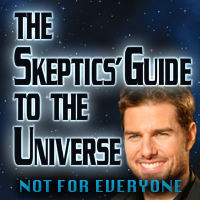I want to talk a little bit about emotional appeal. In a nutshell emotional appeal is the application of anecdotal evidence put forth to influence an opinion. The problem is, being human makes it extremely difficult to squelch emotion altogether, especially when discussing a topic I am particularly passionate about. I think that emotion has its place, even within the skeptical community. There are times when it is appropriate and times when it could be considered a logical fallacy.
It is important to remember that emotion almost always involves subjective experiences and anecdotal evidence. What that means is that it is rarely useful in science and cannot be logically applied to an argument to bolster your position. Emotion is a tool that can be used to describe a personal or subjective experience/feeling. Take for instance, the blog I wrote about being an atheist. Disbelieving in a god is just as unfalsifiable as believing in one. Because of the nature of that subject, much of the post had to be anecdotal emotional appeal. That has its place as a descriptor, but not as a basis for argument. I cannot say that God doesn't exist because it flies in the face of human achievement. However, I can state that the idea of God flies in the face of human achievement. It doesn't prove anything, but it describes my subjective feelings regarding the issue.
Unfortunately, we are emotional creatures. This is a big part of why skepticism isn't as well received as it ought to be. Skepticism often comes off emotionless, which to most people is a cold and dreary state of being. I want to clarify that misconception. Skepticism can be an immense source of happiness. The mysteries and wonders of science are so amazing, they can leave you breathless if given the chance. Skeptics tend to be more analytical people. To others, that can seem boring and uninteresting. The skeptical movement needs passionate individuals that are simply fans of science, whether or not they are experts in any one field.
There is one thing that much of the skeptical movement lacks that other groups in the world have. Charisma. Often-times a scientist's excitement is simply not expressed in a way that the layman can understand. The media tries to fluff up science pieces to make them sound interesting, but the way they do it is by altering or over-simplifying the science being reported on. I hate to say it, but us skeptics could take a page out of the true believers' book. Why do you think woo and pseudoscience is so good at spreading? Obviously it's not because of the woo itself because the moment they were disappointed by it they would throw it away. It's because of the people pedaling it with great charisma!
I did business with a guy locally that I would consider a friend. After getting to know him a little bit I found out he was drowning in a whole mess of pseudoscientific beliefs. He talks about all sorts of homeopathic remedies, natural cures, and subscribes to all sorts of multilevel marketing ideas. None of what he says is compelling, even to the extremely gullible, beyond a magical emotional appeal. The only reason they believe it is because he has more charisma than anyone I've ever met. He's lovable; of course he is extremely deluded in my opinion, but if you meet him you instantly want to be his friend. I can see why so many people trust him and what he says pretty quickly after getting to know him. He sounds intelligent and in fact he is on numerous subjects, but not many scientific ones. If he, who knows literally nothing of science except for the words "quantum mechanics" (not the definition, obviously), can be that compelling to that many people then so can we as skeptics.
Yes this is all anecdotal, but I still think it applies to a large number of pseudoscientists out there. They are successful because they are enthusiastic, and sadly most of them actually believe the things they say which makes their enthusiasm that much more convincing.
In my line of work I teach business owners why relationship building is so important in running a successful business. The product or service is only a tiny fraction of a business's success in most cases. Only a few businesses ever become successful because they stumble upon some brilliant product or niche that hasn't been filled. Most successful businesses are successful because the owner or marketing team has massive amounts of charisma and enthusiasm. We all need to take a lesson from Carl Sagan. There was a man that knew how to excite the masses about science, without bogging them down; he simplified science in a way that the general population could understand and be excited by and he did it without dumbing down the science. Another one is Bill Nye. The only reason that show is entertaining is because the guy is exciting to watch. You can easily see the excitement he has for science and that transfers to the audience. The bottom line is that skeptics need a better marketing team. We have to appeal to that emotional side of our human minds. There is plenty of room for emotion while still sticking to the science and being a logical thinker.
- Alex
Subscribe to:
Post Comments (Atom)


No comments:
Post a Comment